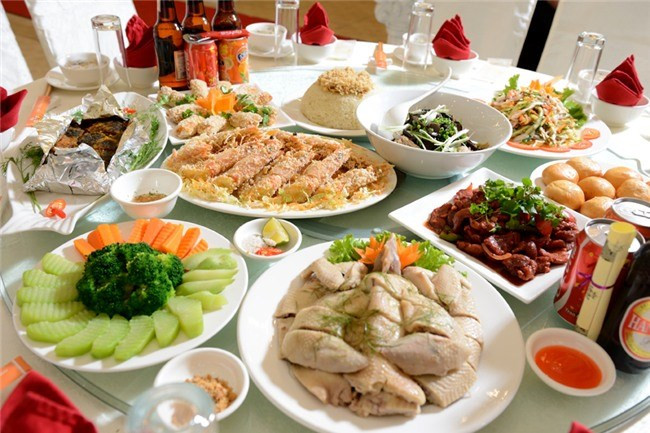The weather is changing seasons, bacteria in food grow faster, making food poisoning very likely to occur.

Taking measures to prevent food poisoning is extremely necessary.
How to deal with food poisoning
- Limit toxins from entering the body by promptly removing and expelling suspected food poisoning from the body by inducing vomiting. For children and adults who are poisoned and in a coma, vomiting should not be induced because it can easily cause choking and suffocation.
- Rehydrate the patient. After inducing vomiting, give the poisoned person oral rehydration solution (ORS) to replenish electrolytes. Absolutely do not give the poisoned person antidiarrheal medication because vomiting and diarrhea help the body eliminate toxins.
- Food suspected of causing food poisoning should be kept to help determine the cause of the poisoning and to guide the search for a toxic neutralizer (if any). For all cases of poisoning, after first aid on the spot, they must be taken immediately to the nearest medical facility for timely treatment by medical staff or appropriate instructions.
Some first aid for food poisoning
- Hydration: If you have food poisoning, it is important to stay hydrated. Ginger tea is a great way to warm your stomach. Non-caffeinated herbal teas such as chamomile, peppermint and dandelion can help soothe an upset stomach. Sports drinks high in electrolytes can be helpful, fruit juices and coconut water can restore carbohydrates and help reduce fatigue but only if you are feeling well. Avoid caffeine, which can irritate the digestive tract.
- Take medication as prescribed.
- It is important for people with food poisoning to get plenty of rest.
What to eat when you have food poisoning?
- You should stop eating solid, hard-to-digest foods until diarrhea and vomiting stop. Instead, eat or drink foods that are easy to digest and low in fat.
- To prevent further stomach upset, avoid foods that are difficult to digest such as dairy, fried fatty foods, spicy foods, and foods high in sugar. Avoid caffeine, alcohol, and nicotine.
How to prevent food poisoning
- Always wash your hands before cooking or eating food.
- Seal and store food properly.
- Cook meat and eggs thoroughly.
- Sanitize anything that comes into contact with raw produce before using it to prepare other foods.
- In the family there must be 2 separate cutting boards for raw and cooked food.
- Make sure to always wash fruits and vegetables before eating.
According toHealth & Life